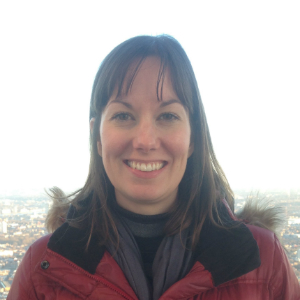 Career progression
Career progression
1. Biochemistry Masters
2. PhD in Pharmacology
3. Postdoctoral fellowship
4. Tutor and consultancy work
Fiona is a Freelance Science and Maths Tutor and Science Education Consultant
What is your career pathway to date (including your education)?
1999 – 2003: Masters of Biochemistry at University of Oxford
2004 – 2007: PhD Pharmacology at King’s College London
2008 – 2011: Postdoctoral fellow in Joint Inflammation & Pain Laboratory, University of Calgary, Canada. Fellowships awarded by Canadian Arthritis Network and Alberta Heritage Fund for Medical Research
2013 – 2015: Arthritis Research UK postdoctoral fellow, King’s College London
Health reasons unfortunately meant I could not carry on in academic research, so from 2015 I have become a Science and Maths Tutor tutoring students from 9 years old up to postgraduate level. I also do some work as a Science Education consultant, helping develop novel and engaging online interactives, animations, videos and lab activities covering key stage 3-4 science with real world context.
What do you do? What does a typical week look like to you?
During the build up to summer exams, I mostly work 7 days a week, though not full days. Tutoring for high school students normally takes place in the evenings after school and I travel to the student. Some evenings I’ll do 5 hours of tutoring and some will only be 1-2 hours. I teach all the science subjects and maths up to GCSE, and Biology and Chemistry A level. Each session lasts for 1-2 hours and the work is very varied depending on the student. The beauty of one-to-one tutoring is that you can get through a lot of material and focus on what the student really needs help with.
Tutoring undergraduates normally takes place online during the day and they will have normally sent me work that they are struggling with and we’ll go through questions and lecture material.
The education consultancy work is sporadic but can be done from home when required, though occasionally I will go to some meetings in central London. I have worked with Google, GSK and BP on science education projects.
What do you like and dislike the most about your current position?
I like the freedom of my current work. I choose the hours I want to work and seldom have early morning starts! Unfortunately, I do work most evenings, but I like having more of my days free and I am rarely commuting during rush hour. In fact, many of my students I can walk to, or if I’m tutoring online, the work can be done from home.
The disadvantage is that I’m self-employed so don’t get benefits such as holiday pay etc. Also, the demand for tutoring is seasonal so I need to make enough money in the busy periods to get through the quiet times. However, so far, I’ve had no issue finding students and am normally having to turn work down.
How do you see your career further progressing in the future?
I am about to take career break to have a baby but the good thing about tutoring and consultancy is that it will be easy to pick up again when I need to. For tutoring, all I have to do is make sure I’m up to date with the latest curriculum. This is easy as all the information is online.
I do miss academic research so may consider in the future going back to the lab. There are grants available to encourage people back after taking time out, so I do feel this is always an option. Tutoring undergraduates does help me keep up to date.
What three pieces of advice would you give someone keen on developing a career in your area of work?
Decide what you would be happy tutoring and buy a few relevant revision text books to refresh your GCSE/A-level knowledge.
Get your profile on popular tutoring websites. This is normally free. They either take a cut of each lesson or the client has to pay a one-off fee to obtain your contact details. Make contact with tutor groups (on facebook, twitter etc) to get advice on how to start. Look around and set your rates similar to other local tutors with similar qualifications.
Keep an eye out for opportunities and network. Don’t be afraid to say yes to things. Most of my consultancy work came from taking the plunge and agreeing to things outside my comfort zone. Make sure you’re always punctual with your work.